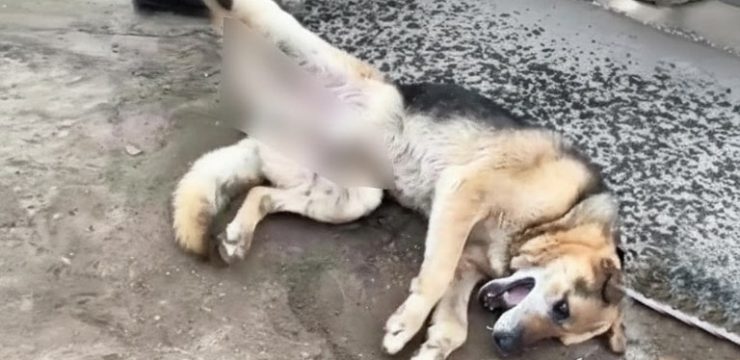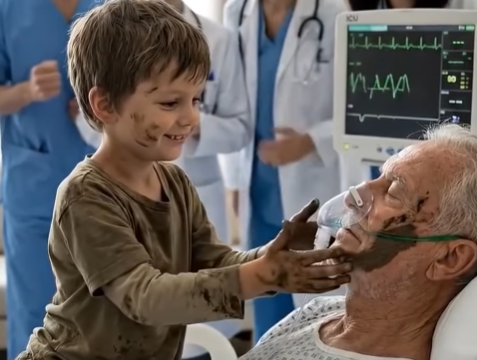Lisa had not expected her world to shift so suddenly. The morning had begun with tension, words exchanged too quickly, and emotions running high. In a moment of anger, she had lashed out, not realizing how deeply her actions would impact the one person who had always stood by her—her mother. Later that day, when she walked into the house expecting the familiar comfort of her mother’s presence, she instead found silence. The rooms were empty, the air heavy with stillness, and in the center of the kitchen table sat an envelope, neatly placed, her name written across it in her mother’s handwriting.

Her heart pounded as she picked it up, her fingers trembling. Inside was a single sheet of paper and a small silver key that glistened in the dim light. The weight of it in her hand felt far greater than its size. With her breath caught in her chest, Lisa unfolded the letter, not yet realizing that the words on the page would change her perspective forever.
“Dear Lisa,
If you’re reading this, then you’ve already noticed the house is empty. I’ve moved out, just as I promised I would. You may feel a mix of emotions right now—anger, sadness, regret, or even relief. But before those feelings take over, I need you to understand something important.
When you were little, you came to me with scraped knees and broken toys, and I was always there to fix them, to comfort you, to give you what I could to make it better. That’s what mothers do—we heal, we protect, and we love without condition. But somewhere along the way, care turned into expectation, and love turned into obligation. I gave because I wanted to, but over time it became something you demanded, without realizing the weight it carried.”
Lisa paused, tears already blurring her vision. Her mother’s words were gentle but firm, a reflection of years of love tinged with disappointment. She remembered the countless times she had leaned on her mother, taking her support for granted, never questioning whether it was sustainable.
The letter continued:
“The money you have seen as your safety net was never meant to last forever. It was your father’s and my savings, built through years of hard work and sacrifice. We kept it for emergencies, for security, not for an endless cycle of dependency. It was never intended to become the foundation of your life.
The key you now hold opens a safety deposit box at the bank, in your name. Inside is a modest inheritance—not a fortune, but enough to send Travis to college, or to start a small business, or to help him chase the dreams he holds close to his heart. It is not a crutch; it is a starting point. It is meant for you to build something lasting, something of your own, for yourself and for your son.”
Lisa gripped the key tightly, her mind racing to her young son. Travis was her world, and yet she knew deep down that she had relied too heavily on her mother to provide for both of them. This inheritance, though small, was a chance to change that.
Her mother’s letter pressed on:
“As for me, don’t worry. I have made arrangements so I can live comfortably on my own. I have moved to a little cottage near the sea, where I can finally enjoy peace, fresh air, and the years I have left. This is not an ending—it is a new beginning, for me and for you.
Lisa, you are stronger than you think. You have the ability to stand on your own two feet and to raise Travis with values that will guide him toward a life of dignity and integrity. I believe in you. I always have, even when you did not believe in yourself.
My door will always be open if you want to visit, to talk, or to rebuild what has been broken. But for now, we both must learn to live independently, to find strength not in what is given to us, but in what we create with our own hands.
With all my love,
Mom.”
By the time she reached the end, Lisa’s tears were flowing freely. The enormity of her actions weighed on her chest. She realized this was not only about money—it was about responsibility, independence, and the chance to become the woman her mother always knew she could be. The letter was not punishment; it was a lifeline, carefully crafted to guide her toward a future she had been too afraid to claim for herself.
The silence in the house now felt deafening. It was not simply the absence of sound, but the absence of her mother’s presence—the warmth, the guidance, the unconditional love that had always been there, even when it went unappreciated. Every corner of the house reminded her of years of sacrifices, of moments she had overlooked, of gratitude left unspoken.
Yet within that silence lay something powerful: possibility. The empty rooms no longer symbolized loss, but a chance to rebuild. Her mother’s unwavering love had not vanished; it had simply taken a new form—one that demanded Lisa find her own strength, for her and for her son.
Holding the letter close to her chest, Lisa made a quiet promise to herself and to Travis. She would not squander this chance. She would take the inheritance, not as a safety net, but as a foundation to build a better life. She would work, sacrifice, and strive to become the kind of mother her son could look up to—just as she had once looked up to her own.
What she found that day was not just an empty house. It was an invitation to redemption, to growth, and to healing. It was a reminder that sometimes love requires distance, and sometimes the greatest gift a parent can give is the push to stand on your own. And though her mother now lived by the sea, Lisa knew that the bond between them had not been severed. It had simply evolved, into something stronger, something that would one day bring them back together—not through dependence, but through respect and love





